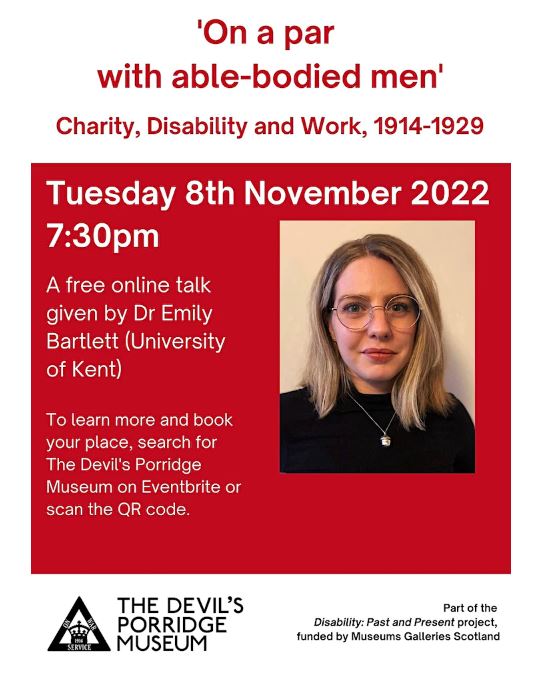From 1914-1918, almost a million British soldiers were permanently disabled in the First World War. These formerly fit young men returned home to an uncertain future. Although the state provided medical care and pensions, disabled soldiers had to find ways to supplement their income and rebuild their identities as productive male breadwinners. Many were unable to return to their old jobs due to their impairments; some faced stigma from employers unwilling to hire a disabled man, and all ex-servicemen were forced to reckon with the difficulties of a wartime economy.
Concerned by reports of starving, unemployed and homeless heroes, generous patrons throughout the country established charities to retrain disabled soldiers in manual labour and find them permanent, meaningful work. At the Poppy Factories, men who had lost an arm or leg mass-produced millions of artificial flowers; amputees at the Lord Robert’s Memorial Workshops expertly fashioned furniture or assembled toys, and blind veterans at St Dunstan’s learned highly skilled, technical poultry farming ‘along business lines’.
This talk will trace the history of charity employment, to uncover the inspiration behind the various types of training offered to disabled veterans during and after the First World War. It will also consider the ways that these schemes portrayed disabled soldiers, how they shaped ideas about war-disability in Britain, and their lasting impact on notions of disablement and work.
Emily Bartlett is a historian specialising in disability, charity, and welfare in twentieth century Britain. She is currently employed as Postdoctoral Research Associate at the University of Kent, and is writing a book about charity for disabled ex-servicemen after the First World War, which will be published by Manchester University Press in 2024.
This event will be held via Zoom and a joining link will be sent on the day.
Book tickets here >
This event is happening as part of our Disability: Past and Present project.
Learn more about this and ‘The Health of the Munition Worker: A Disability History of the World Wars on the Solway Military Coast’ exhibition here >





